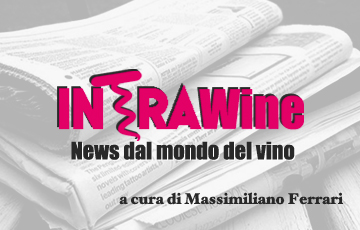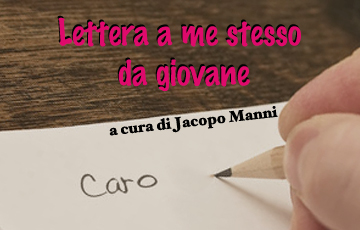[Focus] Bolgheri unfiltered (english version)
di Tommaso CiuffolettiL’articolo che segue è la traduzione in inglese del pezzo omonimo prodotto in italiano dall’autore. Traduzione effettuata con DeepL Pro.
The following article is the English translation of the eponymous article produced in Italian by the author. Translation made with DeepL Pro.
Fabio Motta ceded control of the company that bears his name to Agricole Gussalli Beretta. And he did so because he had to proceed with the purchase of a vineyard, that of Le Pievi.
It all came about because the lease on the Le Pievi vineyard was expiring, but the owner, instead of renewing it, wanted to sell. Alone, with the prices that Bolgheri has reached, I couldn’t grow any further… I had initially thought of going ahead with just the vineyards that I owned, but we are talking about a small surface area compared to the company’s needs. So I started looking for a partner and came across the Gussalli Beretta family.
10,000 bottles produced, declared, for a vineyard registered as Bolgheri Rosso DOC.
And here the first two questions arise.
. In order to maintain ownership of a vineyard, do you sell a controlling stake in your company (moreover to a partner with much greater economic and financial power than you, with the prospect therefore of remaining making wine only as long as everything goes well)?
. That the lease on that vineyard was about to expire must have been known to you, and did you not take the necessary precautions to get there to avoid finding yourself in the position you found yourself in?
Let us leave aside the first question, since perhaps the answer is the same as we will find at the end of the reflection to answer the second. What must be considered in order to answer the question is that the owner of the vineyard apparently did not want to renew the lease, but to sell. Why? Because the current prices of the vineyards registered for Bolgheri Rosso DOC are what Fabio Motta says they are.
Negotiations usually start around 1 million for vineyards with Bolgheri DOC shares and close a little lower, but not much.
This is today’s estimate. But to understand it, we have to put it into historical perspective, given that the price of vineyards registered for this DOC has been growing steadily since 4-5 years ago, and then an anomalous surge in the last two years (an estimate made by gathering data from those who have bought in Bolgheri in the last decade is that until 6-7 years ago you could buy at around 150-200k per hectare, then the figures doubled in about 3 years, and then the surge in 2022).
The rise in prices has been sustained by a long series of deals of which we give a quick overview, dated December 2023, in an article signed by Fabio Gibellino for Pambianconews.
The last transaction in chronological order was a few weeks ago, when Berlucchi, to celebrate the 20th anniversary of its Caccia al Piano, bought five hectares for the production of IGT in Le Bozze, bringing its total property to 29.5 hectares.In March, on the other hand, it was Ruffino (owned by Constellation Brands) that took over 15 hectares, four of which on Via Bolgherese and eleven at Le Sondraie, with the aim of creating a new label whose debut on the market is expected in 2025.
Going backwards, in December 2022, Tenuta Sette Cieli, with an initial acquisition of two hectares and a subsequent planting of 1.4 hectares, reached a total surface area of 18.5 hectares, while the Bonacchi group took over La Cerretella and its four hectares of vineyard for an estimated 2.5 million euros.In May [also 2022 ed.], on the other hand, Frescobaldi, which already controls Ornellaia and Masseto, for a sum of just over 9.3 million euros, also brought Podere Arundineto and its 12.8 hectares, 10.3 of which in Bolgheri Doc, into the group.
And that’s not all, because Ambrogio and Giovanni Folonari‘s Tenuta Campo al Mare also expanded, adding nine hectares to the 30 already owned, and Attilio’s son Michele Scienza’s Guado al Melo, which managed to obtain a further six hectares, bringing the total to 21.And again in the course of the year, Campo alla Sughera, owned by the German Knauf family, took over a couple of neighbouring hectares, bringing its total to 22, while Collemassari Wine Estates, owned by Tipa-Bertarelli, added a further five hectares to be destined for the production of Grattamacco.
A few months earlier, on the other hand, Bell’Aja, a company owned byAgricola San Felice, which in turn is controlled by the Allianz Group, acquired Batzella, a company with 7.5 hectares under vine founded in 2000 by Khanh Nguyen and Franco Batzella.Here, the project includes the planting and development of a further 3.5 hectares of new vineyards on land already owned.And still missing from the roll-call, but a little off the track, is Banfi, which this year brought to the winery the first harvest from the 10 hectares of bare land leased in 2019, production that adds to that of the five hectares acquired in 2013.
Then the 15 million euro investment by Abfv Italia [Alejandro Bulgheroni Family Vineyards ed.], which in October 2024, in the former Cariola quarry, should see the completion of the new home of its Tenuta Meraviglia, a 34-hectare estate that is the equivalent of the group’s other, and even larger, property: Tenuta le Colonne, which has 59 hectares at its disposal.
The citation is long, the operations mentioned many, but do not be distracted. The really interesting part of the operations mentioned were those involving vineyards registered in Bolgheri DOC. Indeed, often the purchase of extra hectares (and perhaps even real estate) was simply the condition imposed by the seller to allow the sale of the precious DOC vineyards. A buying rush like the one above has a leavening effect on land prices. But everyone I heard pointed to one specific transaction as the one that broke the bank and set the price of DOC vineyards at unprecedented levels.

The more observant among you will have noticed that the operation with the highest average cost per hectare for the buyer was the one supported by Frescobaldi (hence Ornellaia and Masseto) for the purchase of Podere Arundineto and its more than 10 hectares of vineyards in Bolgheri DOC.
‘Land is bought and sold, that’s normal.I don’t remember the figure,’ says Lamberto Frescobaldi in a joking tone, ’but we should go on bread and onionsfor a while.And the joking tone turns into laughter.So said Divina Vitale in the Corriere Fiorentino.
Lamberto Frescobaldi can afford that laugh in light of the profits of Ornellaia and Masseto, which stand at over 33 million euros (given in 2022). A monstrous figure that is mainly to the credit of a brilliant manager like Giovanni Geddes da Filicaja. For someone who performs like that, the only problem, if you can call it that, is reinvesting those profits. Given the current financial climate, the idea of still investing where those profits are realised is entirely understandable. Of course, the problem is, if anything, one of slipping as a buyer into an overheated market.
Those who followed the purchase negotiations for Podere Arundineto with some attention explained to me that the seller, ‘the Cristini-Corsi family, which already has a prosperous timber business in the area’ (Divina Vitale again explains in Corriere Fiorentino), was very firm from the start: this is the price and if it does not suit you: goodbye. Frescobaldi obviously tried to conduct negotiations to lower the seller’s demands, but then …think about it for a moment.
You buy at an important figure, even by the already high standards that are being defined, OK, but you know that in doing so you will be setting a new average price level for vineyards that you are already, in turn, the owner of. In a way you will also revalue upwards the value of your own land. This reflection is mine, and I do not know if it is the same as that of Geddes da Filicaja or Lamberto Frescobaldi, but it seems to me to be an entirely legitimate reflection at a time when one accepts conditions such as those finally accepted.
This had an effect on the entire Bolgheri habitat. You know how land sales work, don’t you? If you buy today at X price, word spreads in a microsecond and within that microsecond everyone who has land to sell will consider it legitimate to sell for that same amount or even more.It’s a simple old rule, but it always applies.Especially in a business like wine, which – to quote Eric de Rothschild – ‘is first and foremost a question of land’ (to be read in the double sense of reference to terroir, but also of land investment).To cite a famous example, well recounted in his memoir, when Ezio Rivella set out to buy the land of a semi-abandoned Montalcino in the late 1970s, he took care to buy a lot of land and all at once because he knew that if he started buying one piece at a time, he would have paid 10 times the price of the last parcel.And if that reasoning was valid for the Montalcino of the time (where a hectare sold for a couple of million old lire), it is even more valid for the Bolgheri of today.
The purchase of the Arundineto land at a figure of around 700,000 euros per hectare of vineyard registered as DOC, redefined the rules of the game and did so no more than 2 years ago.This helps us to answer the second question we started with and partly also the first.
The situation created as a result of that purchase resulted in excellent conditions for sellers, conditions considered so exceptional that even those who had land that was being rented out realised that the time to sell was so propitious that they could not put it off.Fabio Motta, who moreover had already undertaken the construction of his own cellar in previous years (and I imagine had the weight of a non-trivial mortgage on his shoulders), made the exact same reasoning as the person who sold him the land: this is the moment to sell. In his case, reasoning also compelled by the fact that he had no plausible alternatives (considering also that the time factor did not work in his favour).
This is as far as it goes to frame the situation, but there are still a number of ancillary considerations worth noting.
Is this situation destined to remain? Normally not, because such a high price – if we take the classic rules of the market – should lead to an increase in land for sale that would eventually set the price down. But the market for DOC registered vineyards is a closed market and therefore it is not possible to change the quantity of supply on the basis of price. The answer therefore is that yes, in the short and probably also in the medium term, the price evaluation level of Bolgheri Rosso DOC vines will remain reasonably around these levels, transforming anomaly into normality. This has the effect of revaluing upwards all the properties that have those vineyards.A gift that Ornellaia has given to itself and to all the owners of Bolgheri.
The above, of course, assuming that the sales figures for Bolgheri wines remain at their current levels in the coming years. If this were not to be the case – given that the value of those vineyards is largely linked to the performance of the wines they produce – the whole equation would have to be rewritten and the potential backlash could be quite painful.

But let’s take it for granted that everything will go on rewarding the territory and its upward game. Is this an all positive-sum game for Bolgheri?
No, not in my opinion in the long run. The Fabio Motta case tells well how this rising water level will change or rather exasperate the features of the Bolgheri habitat. An habitat that is already strongly monocultural, where there’s room just for rich and noble, or just rich, companies that dominate in terms of volume, value and image. Fabio Motta, in his own small way, was an opportunity for Bolgheri to enrich its image with something that did not have 2 or 3 surnames or was not the millionaire investment of those who can afford to spare no expense.I myself had presented Motta, right here on Intravino, as the Robespierre of Bolgheri, clarifying:
Fabio Motta may not be a Robespierre, but he is certainly Bolgheri’s new star, and he does so with a smiling, unconventional, self-ironic communicative force that is so far from the somewhat stiff, serious, and even a little impish image that is classically associated with Bolgheri. Because Bolgheri is the land where Italian wine began its modern adventure on the world stage.An adventure whose background is not peasant but unashamedly noble.
Read carefully the names of those who have bought land in Bolgheri in recent years and you will see that the direction of this territory is very clear in terms of the profile of its interpreters: Bolgheri is reinforcing its character as a land for rich. The price of this increase in value in the short and medium term, is a further loss of biodiversity in the long term.
Greater species diversity ensures natural sustainability for all life forms. It is a concept that applies to a natural habitat, just as it applies to an agricultural habitat, just as it applies to a productive habitat. It is even more valid for a peculiar habitat such as that of a consortium, in which everyone is a competitor, but everyone also cooperate in building a shared image that gives value to each and every one.
Impoverishing the biodiversity of a place is not a good investment in resilience and in the long run this exasperated ‘monoculture’ of Bolgheri could prove to be poorly adaptable to possible changes in the scenario.
But maybe I am wrong and in the end an environment that concentrates resources and power is the most capable of responding to the challenges of the future.
And it may also be that this is worth much more than any consideration of the appeal of a Bolgheri brand that today, more and more, looks a lot a bling bling stuff and leaves little room for anything else.
Final considerations on the sidelines.
. From the point of view of Gussalli Beretta, I believe that the acquisition of Fabio Motta was an excellent move. Perhaps it could have been communicated differently, but it is certainly a purchase that makes a lot of sense for a long series of factors (including Motta’s international projection, which is much greater than the Agricole Gussalli Beretta brands, which will reasonably benefit from this acquisition, in many foreign markets).
. To cede control of one’s company to a group controlled by the Luxembourg holding company of a family whose main business is the manufacture of arms is an entirely legitimate thing to do, but it is equally legitimate that it may not exactly win transversal sympathy … to say the least.
That said, for me, as always, everyone is right. Except me, ’cause I wrote, closing that previously quoted piece (where I also retraced a good chunk of Bolgheri’s history):
What I can say [about Fabio Motta] is that he is a smiling and polite guy, serious and confident in his work without ever losing his humility. He is not the Robespierre of Bolgheri, no, but after Michele Satta he is as close as one can get to redefining the sense of place in a more modern, more open, more vital… more democratic key? I don’t know, and I don’t want to throw it into politics, but there is a new road here. Trust me: it will go far.
That new road has not gone very far. Unfortunately for me… or perhaps, unfortunately for Bolgheri.

![[Focus] Bolgheri unfiltered (english version)](https://www.intravino.com/wp-content/uploads/32ceae30-b938-48ce-bd56-0b4ad21e7b54-750x400.jpeg)










Nessun Commento